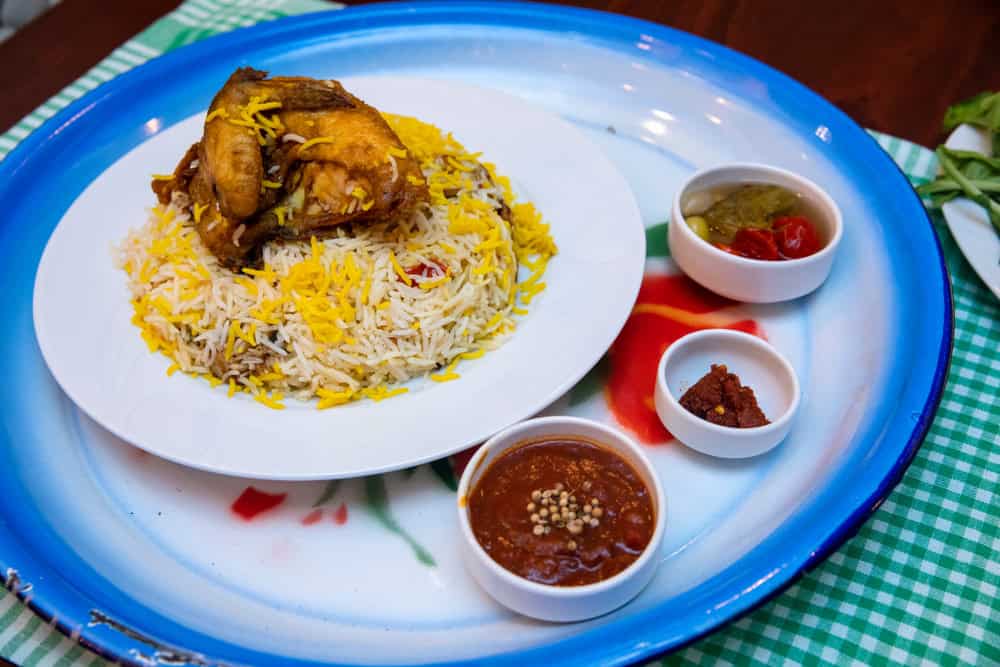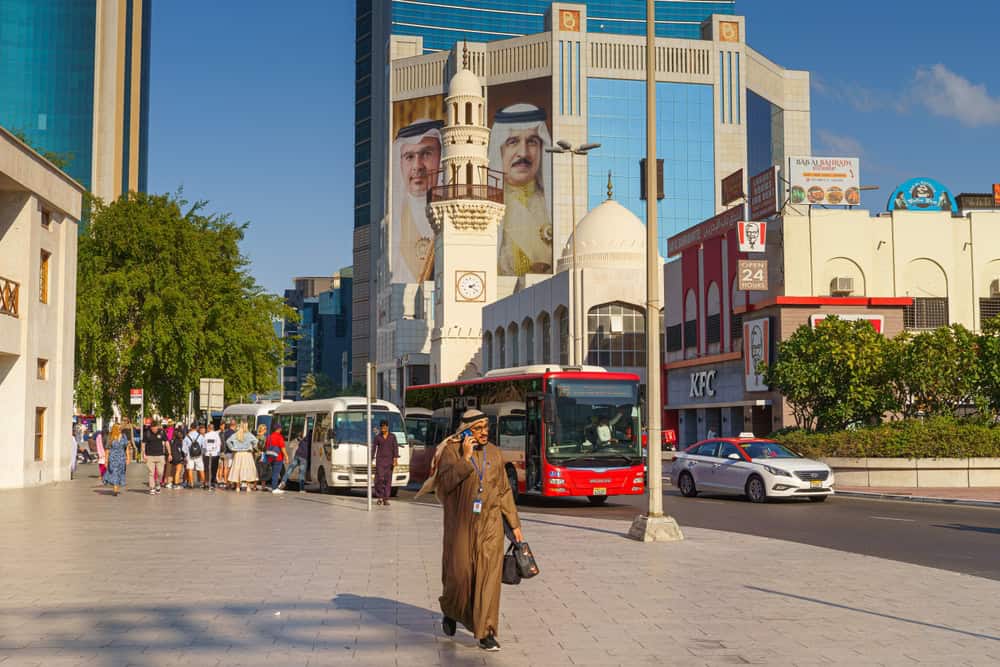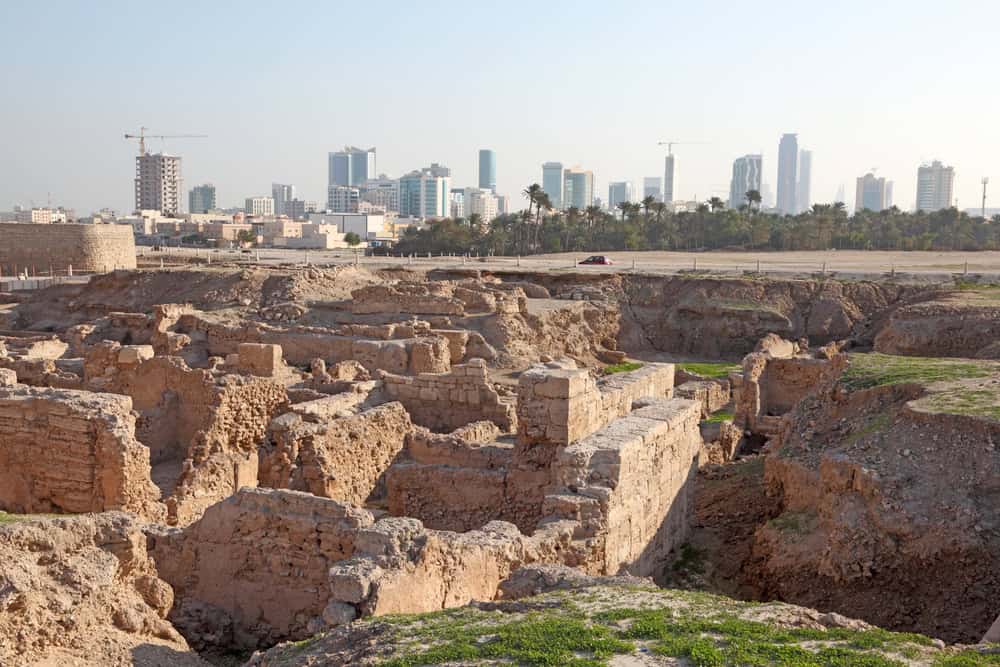The Kingdom of Bahrain is said to be one of the best locations in the Middle East for expats to live and work, which is not surprising since expats comprise more than half of the population – outnumbering the locals!
Bahrain is an island nation situated in the heart of the Persian Gulf. A significant number of tourists flock to this incredible country from worldwide every year. Manama is the country’s biggest city, with an estimated 157,000 people living there.
Keep reading to find out everything you need to know before moving to Bahrain.
1. English is widely spoken

Although Arabic is the official language of Bahrain, you don’t have to worry about the language barrier since nearly all the locals speak English.
Businesses and shops are mostly bilingual, showing Arabic and English, which goes for all the road signs.
Keep in mind that learning a little Arabic could be fun, and it will make your experience in Bahrain even more enjoyable!
2. The cost of living in Bahrain
Expats moving to Bahrain will be happy to know that the cost of living is relatively low.
The government subsidies utilities such as electricity, gas, and water to be affordable and accessible to everyone.
According to stats, renting accommodation in Bahrain costs 37.65% lower than in the US, and prices for groceries follow the same 6.76% lower pattern being 3.
3. Climate in Bahrain
If you live in America or Europe and think summer is hot, think again. Bahrain takes the prize for extreme heat and high humidity. By that, I mean temperatures up to 50 degrees celsius.
Thank goodness for air conditioners!
Dust and sandstorms are pretty common in June and July due to northwesterly winds from Saudi and Iraq. When this happens, visibility is poor, and it’s better to avoid being on the road.
4. Working in Bahrain
Bahrain has increased its focus on service and tourism sectors so that all visitors will need visas for work or tourism.
Before moving, you will need sponsorship from your employer to apply for a work visa. You will need to supply the following documents:
- Your visa application form
- Your passport
- A passport-sized photo
- Your sponsorship letter with: your employer’s name/company, commercial registration number, employee’s capacity, salary, contract duration, employee’s name, birth date, and nationality
- A copy of your work contract
- Your health record from an authorized clinic
The Labour Market Regulatory Authority provides work Visas for a fee of 100 BHD ($265).
Foreign workers can also apply for a family visa, making it easy for a wife, husband, or child to join them.
5. Bahrain has excellent healthcare facilities

Bahrain’s healthcare facilities are nothing short of fantastic, as the country invests a significant amount of money in health.
Foreigners have the option of private and public healthcare, with access to top-class facilities and highly-trained medical professionals.
You will also find Western expats offering their services like chiropractors, naturopaths, physios, and reflexologists. Several Indian health centers provide alternative treatments and massages.
6. Taxes in Bahrain
A big reason why Bahrain is so famous among expat employees is that taxes do not affect salaries.
Unlike in other countries, there is no income tax system or capital gains tax. However, a “Social Insurance Tax” has recently been introduced, only 1% of your gross salary per year.
7. Bahrain’s education system
A sound education system is essential for expat families, and Bahrain ticks the box.
Even though expats aren’t allowed to attend government schools, there are still plenty of private and international schools. These include British, American, and International Baccalaureate Diploma schools.
If you’re thinking of relocating to Bahrain with your kids, be sure to do some research – school fees are on the expensive side.
8. Immigration requirements
Most larger companies in Bahrain employ somebody with the entire job of dealing with the immigration of foreign nationals.
Before obtaining a residency permit, you need to have a work visa. (The requirements are mentioned above).
Your sponsor company will assist with your work permit application from the Ministry of Labour with the addition of a certificate of No Objection from the Ministry of Immigration.
Once you receive your visa, you must carry it on you.
Unfortunately, those with any connections to Israel (even just a passport stamp) won’t be allowed to enter Bahrain.
9. Chicken Machboos is Bahrain’s national dish

Whether you’re a foodie or not, you’ll undoubtedly enjoy the country’s unique and tasty national dish.
Special Bahrainian spice blends, loomi (dried Persian lime), rice, and chicken, topped with a mix of rose water and saffron, make the perfect flavor combination. It’s typically served with a side of the popular Daqoos (a green chili sauce).
10. They are the biggest consumer of electricity in Asia
Bahrain is known to have one of the highest energy consumption rates worldwide, using almost three times more electricity per person than the global average.
According to statistics, Bahrain consumes a whopping 11,500 kWh of energy per capita, compared with the world average of just 3,030 kWh.
In recent years their electricity consumption has increased 326.32% from 1990.
11. Bahrain has a universal health care system
Bahrain’s public health system is excellent, but it’s important to mention that there are often long lines and waiting lists for treatment.
Most expats have health insurance, which covers Bahrain’s more expensive healthcare, like dental care, for example, and it will also ensure that you receive faster, more efficient care.
12. Drinking alcohol in public is still illegal
What you think is a nice gesture, like bringing an alcoholic gift to a social gathering, could be detrimental in Bahrain.
Alcohol consumption is forbidden by law, like in most Islamic countries. But the sale of alcohol is still legal for non-Muslims. You’re good to go as long as you don’t drink in public (or gift it).
Being drunk in public is considered a grave offense, so instead, stay at your apartment if you’re having a party.
13. How to get around in Bahrain

If you’re brave enough to drive on the chaotic roads in Bahrain, consider hiring or buying a second-hand car. Just make sure the air conditioner works – you’ll need it.
A huge pro is that petrol is incredibly cheap since it’s heavily subsidized, so you won’t be spending much to fill up.
If you would prefer not to drive, you can take a bus, a taxi, or even hire a driver.
14. Tradition and culture
Bahrain’s official religion is Islam, with a 70% Shia Muslim population. Interestingly, the country is ruled by a Sunni Muslim family, which has resulted in conflict in the past.
It’s common for foreigners to face a significant culture shock during Ramadan, the Islamic holy month, whereby Muslims fast from dawn till dusk. This affects working and business hours, and shops may be operating at unusual times.
Many believers practice nightly prayers during this time. This is in addition to the usual five prayers a day, at dawn, noon, afternoon, sunset, and evening. (Exact times are listed in the daily local newspaper)
You should also know that Friday is the Muslim holy day, and everything is closed.
15. Bahrainis are tremendously friendly
Bahrainis are very friendly and welcoming to foreigners in their country. You’ll also notice that they’re incredibly proud of their kingdom and culture.
Expect to make lots of local friends, and if you’re ever in need of assistance, you will undoubtedly be in good hands.
16. Housing and accommodation
Many expats who move to Bahrain usually rent accommodation because strict regulations limit the properties that foreigners can buy.
You can choose to rent a modern apartment in new buildings with added benefits like a gym, swimming pool, tennis courts, restaurants, and more.
17. The mysterious Tree of Life

A true miracle, according to the locals and foreigners alike, the Tree of Life is a magnificent tourist attraction in the middle of nowhere in the Arabian desert.
Why’s it so special? This 400-year-old tree has survived with no nearby water source, with frequent, harsh sandstorms in average temperatures of 105 to 120 degrees Fahrenheit!
There’s no logical explanation for how the tree is alive or where the water in its root system comes from.
This mysterious tree attracts numerous tourists. Some are looking for answers, and some consider it a sacred, religious place.
If you relocate to Bahrain for work, your employee will likely help you find a place to stay.
18. Clubs and friends
Bahrain’s large expat population offers you many opportunities for meeting new people and making friends.
There are famous expat clubs like the British Club, the Rugby Club, hotel beach clubs, women clubs, book clubs, and various sports teams you could join.
Bahrain has something for everyone, and you are bound to find a fun way to pursue your hobbies and enjoy your social life.
19. What to see and do in Bahrain

You are spoilt for choice with awesome activities and attractions in Bahrain.
Whether exploring beautiful desert landscapes and ancient ruins or spending the day at a giant waterpark, you can have a good time.
Bahrain boasts three UNESCO World Heritage Sites
- The Bahrain Fort (Qalat al-Bahrain, pictured above)
- The Pearling Sites
- The Dilmun Burial Mounds
All three are equally spectacular and worth the visit!
Also, make sure you visit the Lost Paradise Of Dilmun Water Park – the biggest in the country, with loads of fun slides, pools, and a large beach to relax on.
20. Shopping in Bahrain
Bahrain is a shopaholics paradise. You’ll find several dozen malls in the capital city of Manama alone, with thousands of shops selling everything from luxury designer brands to souvenirs.
The Avenues is arguably the best mall in Bahrain.
If you want a more authentic shopping experience, head to the local souk – a traditional Arabian marketplace where you’ll find jewelry, fabric, pottery, art, etc.
Grocery shopping in Bahrain is easy. You can choose from a range of Western, Asian, and local supermarkets.
21. Bahrain is a relatively safe
Crime rates in Bahrain are low, as local authorities punish criminals harshly.
Petty crime is the only thing you need to be aware of, such as pick-pocketing and wallet snatching in the market and souk areas.
To avoid any problems, be mindful of carrying valuables on you, and if possible, instead leave them in your room.
FAQs
Who is the king of Bahrain?
Hamad bin Isa Al Khalifa has been the king of Bahrain since 14 February 2002.
What is Bahrain famous for?
Bahrain is renowned for being a subtropical desert island with an abundance of date palms and camels.
How is expat life in Bahrain?
Life in Bahrain as an expat is a breeze.
According to an InterNations survey, the country ranked highly across key factors like medical care quality, political stability, ease of settling in, and job satisfaction.
87% of ex-pats find it easy to live in Bahrain without knowing Arabic.
What rights do women have in Bahrain?
The sad reality is that Bahraini women don’t have equal rights to men. However, this has improved in recent years.
Women gained voting rights and can be considered candidates in national elections since the constitution was amended in 2002.
Final Thoughts
Bahrain is one of the easiest Middle Eastern countries to live in despite the extreme heat, the dust, and the culture shock.
Most expats fall in love with this beautiful country – the people, the food, the lifestyle, and the very active social scene.
Accepting and embracing the slow pace of Bahrain will make for a truly incredible experience.